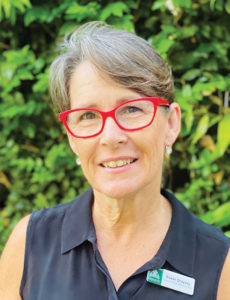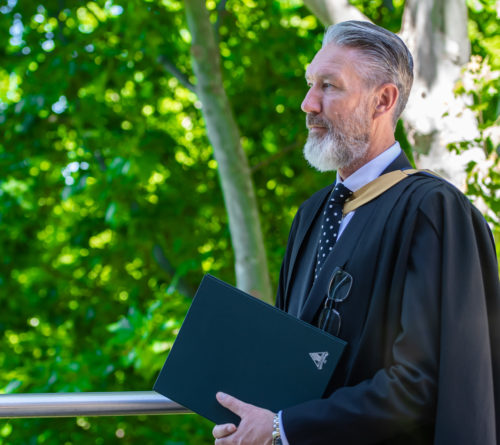From the Deputy Head Master – Summer Hill
#BreakTheBias.
Tuesday of this week was International Women’s Day, a day where we are challenged to imagine a gender equal world. A world free of bias, stereotypes, and discrimination. A world that’s diverse, equitable, and inclusive. A world where difference is valued and celebrated. This is the lead text on the International Women’s Day homepage in 2022, and, for a number of years, we have formed the view that the boys and young men at Trinity Grammar School need to be challenged to be part of the national (and global) conversation about gender bias and discrimination. This week your sons have listened to senior women at Trinity talk of their experience at Assembly, on the Quad, and at House period. At Wednesday’s Senior School Assembly, Ms Sue Draysey, our Careers & Students Pathways Advisor and Officer Commanding of the Trinity Grammar School Cadet Unit, spoke to the young men in Year 10, 11 and 12. A precis of her remarks follows.

It is hard to imagine now, but only the year before I was born, the law in Australia changed and allowed women who were employed in the public service to continue to work after they were married. That’s right, you heard that correctly – when women married, they had to leave their jobs.
And just 20 years or so before that, let me quote for you, an excerpt from a book published in 1942 about the recruitment of women for work in the public service:
“There is some evidence that they are more adaptable to monotonous work than men. Women are still prepared to undertake such work at comparatively low salaries, and their retirement upon marriage is still an important factor ensuring rapid turnover…”
My intention is not to pass judgement about these laws or opinions about women, but to explain to you how important it is to have a voice, and, for me, International Women’s Day is about having a voice.
I grew up not knowing any other way than for men to make the rules that I would live by. For me, I did not ever consider that women would be in positions of authority or control. The old adage, ‘you can’t be one until you see one’, rang very true for me.
The morning that we woke to the announcement that Australia had its first ever female Prime Minister, I was helping at my sons’ primary school sports day, and I remember telling the Year 6 girls that I was looking after that morning, how lucky they were to know that being a female and Prime Minister were now compatible.
When I joined the Navy in 1986, 8% of those serving were women, and what happens when you are in the minority is that your voice is stifled. It is stifled by others, and very often you soften your own voice too. I know this because for many years, I kept quiet in the face of biased treatment. In the moment, I didn’t see these occasions as screamingly obvious moments of unequal treatment. On reflection, they were.
What was the cost for me, of not finding my voice in those moments? Lost promotion opportunities certainly, but more importantly, lost moments for me to be in the place that I had a right to be, alongside male co-workers.
At Trinity Grammar School, we walk right up to the challenge that toxic masculinity presents in our society. It’s an awful term, toxic masculinity, and as the mother of three young men, I am horrified that these two words are used together.
My experience is that most young adult males do not behave as badly as the few who make media headlines. I do not for one minute though, suggest that atrocious, disrespectful and non-consensual acts are not committed. Women and men alike need to continue to use their voices to call out bad behaviour.
If our voices can’t be heard when the ‘smaller’ stuff happens, how on earth will they be heard when the big, out in the open stuff happens? Please don’t be afraid to use your voice.
Then, on Friday morning, Dr Rachel O’Brien, Housemaster-Middle School of Taubman House, spoke to the Middle and Senior School assembled around the Quadrangle. She used a powerful and relatable extended metaphor to explain why she believes that International Women’s Day remains both important and relevant.

Over the last few years, I’ve noticed something. When the topic of International Women’s Day comes up in my classes or conversations with boys, every single time, someone asks the question, “Why isn’t there an International Men’s Day?”.
My experience is not unique. On Tuesday evening my friend jokingly asked his kids the same question. His five-year-old daughter, Billie, replied, “because men are treated well every day”. Billie already had an answer, because it also wasn’t the first time she’d been asked the same question.
You might be thinking we shouldn’t need an International Women’s Day anymore. Women have the right to vote, the right to the same education as you, the right to work and be in positions of power. I’m a woman, I am a Housemaster, I have a PhD, I get to speak to you today. Don’t I already have a voice? Do we still need to mark International Women’s Day?
Perhaps one way we can answer that question is to think of it a little bit like the daily journey to school. If you get driven to school each morning in a Porsche Macan, you probably don’t think about your trip to school a whole lot. But, if you’re getting the train from Campbelltown every day, a trip that takes you at least an hour and a half each way, then the experience of your commute will be significant to you.
This comparison is what it’s like for many women. Yes, the guy on the train and the guy who rides in his Porsche both arrive at school mostly every day. But their journeys are quite different. For the person on the train, the route might take longer, there might be lots of stops along the way, it might be lonely, it’s probably less comfortable, and it might even be more dangerous. And that’s just the journey itself.
This is what the theme of International Women’s Day, break the bias, is about. It’s about considering the difference that still exists in the everyday experience of men and women. It’s about questioning the assumptions we make about women’s journeys, how they arrive, and who they are when you meet them at their destination. If you’re the one lucky enough to have the easier ride to school, perhaps there are opportunities for you to look out for, listen to, value, and respect the person whose trip wasn’t as easy as yours
My hope today is not to make you feel like you’re a bad person for being born with that nice metaphorical car. I want to help you understand that, even now, when we see more and more men and women getting to the same place, experiencing the same opportunities, their path to get there is still often different. Of course, this is also true for men of different backgrounds, cultures, and status, but it is overwhelmingly the case when we compare the experiences of men and women.
Yes, women have the right to vote, to have the same education as you, and to work. Yes, we have women in power. Yes, there are women who are leaders. But their trip to get there is still more like a train trip from Campbelltown than a comfortable ride to school in a Porsche.
When this is no longer the case for the majority of women, then we might not need International Women’s Day anymore. And that’s a day even I’m looking forward to.

Bradley Barr | Deputy Head Master – Summer Hill
















